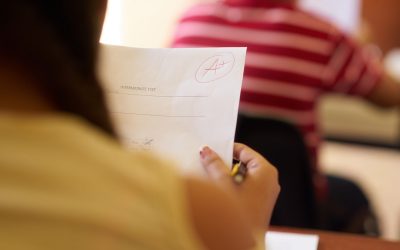Today’s teens are as stressed out as adults, and are often so focused on how they’re not measuring up to peers that they forget how much they already have to be grateful for.
But making an effort to reverse this thinking can really pay off, because feeling more gratitude can lead to a number of benefits for students, including…
- Higher GPA
- Feeling more satisfied about school
- Less stress
- Better sleep
- More resilience
- Stronger relationships
- Less materialism
- Fewer symptoms of depression
- Greater life satisfaction
How To Increase Teens’ Gratitude
There are a number of simple ways to help teens increase their level of gratitude. Here are three of my favorites!
1. List 3-5 things you’re grateful for each day
“… there is something about everything that you can be glad about, if you keep hunting long enough to find it.” ―Eleanor H. Porter, Pollyanna
In a recent study, students who took a few minutes each day to record 5 things they were grateful for were significantly more satisfied with their school experience both immediately after the study concluded and in a 3 week follow up survey afterward.
A similar approach has been used in numerous studies of gratitude with children, teens, and adults, and it has surprisingly powerful effects given the small amount of time it takes. Making a habit of counting your blessings at the end of each day can encourage students to start paying more attention to good things as they happen, too.
There are special journals like the 5-minute journal that can encourage you to take time out to record things you’re grateful for every day, but you don’t need a special gratitude journal to get the benefits of the exercise! Jotting them down in a notebook or a post-it note or sharing them out loud works just as well.
2. Consider how it could be worse
If you think your teen would roll their eyes at the idea of listing all the things they’re grateful for, this is a good alternative—try coming up with a situation that would be WORSE than your current circumstances.
For example, if they just dropped their phone on the floor and cracked the screen, instead of focusing on the crack they could consider how much worse it could have been if the whole screen had shattered and they had to pay for a new phone. These imagined scenarios, called “downward counterfactuals”, are associated with higher levels of gratitude.
One of the students I coached a few years ago applied this idea by using the phrase “First world problem!” to remind herself that whatever she was complaining about (her math teacher, the chores she needs to do, etc.) would seem like a blessing if she were living in a third world country. This immediately shifted her perspective and helped her feel grateful for the good things in her life.
3. Write a gratitude letter
Writing a letter expressing your gratitude to someone who has had a positive impact on your life is another strategy that has been used frequently in gratitude studies, and it has surprisingly long-lasting effects on participants’ happiness and life satisfaction. Even though it only takes a few minutes, the benefits can last a month or more. This exercise is even more effective if you’re able to share the letter with the recipient in person. The Greater Good Science Center describes in their article here how to reap the benefits from this gratitude practice if you want to try it out yourself.
Putting it into practice…
Consider sharing these ideas with your teen to see which one appeals to them the most, or choosing one to do together as a family over the holiday break. For example, consider…
- At dinner, go around the table and have each person share one thing they’re grateful for
- Play the “it could be worse!” game when you’re traveling, especially when you’re experiencing frustrating delays & inconveniences
- Take some time out at a family gathering to write gratitude letters
These are all simple but effective exercises, and Thanksgiving is a wonderful time to try them out!
How do you and your family practice gratitude? Is there a tradition or game you incorporate into your holiday traditions – or your day-to-day life – to help remind you of all the blessings you have?

Join 11,000+ parents helping their students earn better grades with less stress!

About The Author
Dr. Maggie Wray is a certified ADHD Coach & Academic Life Coach with a Ph.D. in Neurobiology and Behavior from Cornell and a Bachelor’s degree in Astrophysics from Princeton. She founded Creating Positive Futures in 2012 to help high school and college students learn how to earn better grades with less stress. Her team of dedicated coaches is on a mission to empower students to develop the mindset, organization, time management, and study skills they need to achieve their goals.
Related Posts
Other Posts You May Enjoy
Preparing for exams: 4 steps to success
As we get closer to exams, students are getting increasingly stressed out. And when teens are stressed about their exams, it can affect everyone else around them, too! Following the four-step planning process below can help students prepare more effectively for their...
How to finish the semester strong
Students' grades are the most important factor colleges consider when making admissions decisions.So, with the end of the semester approaching, how can you make sure your student is finishing the semester with the best grades they can? At this point in the semester,...
Why it’s hard for students to “just turn in” missing assignments, and how to get them unstuck
With the end of the semester on the horizon, many students may feel overwhelmed by low grades or feeling behind in some of their classes. As a parent, it can be stressful to see that your student has overdue work, or get notifications from their teacher that they’re...




